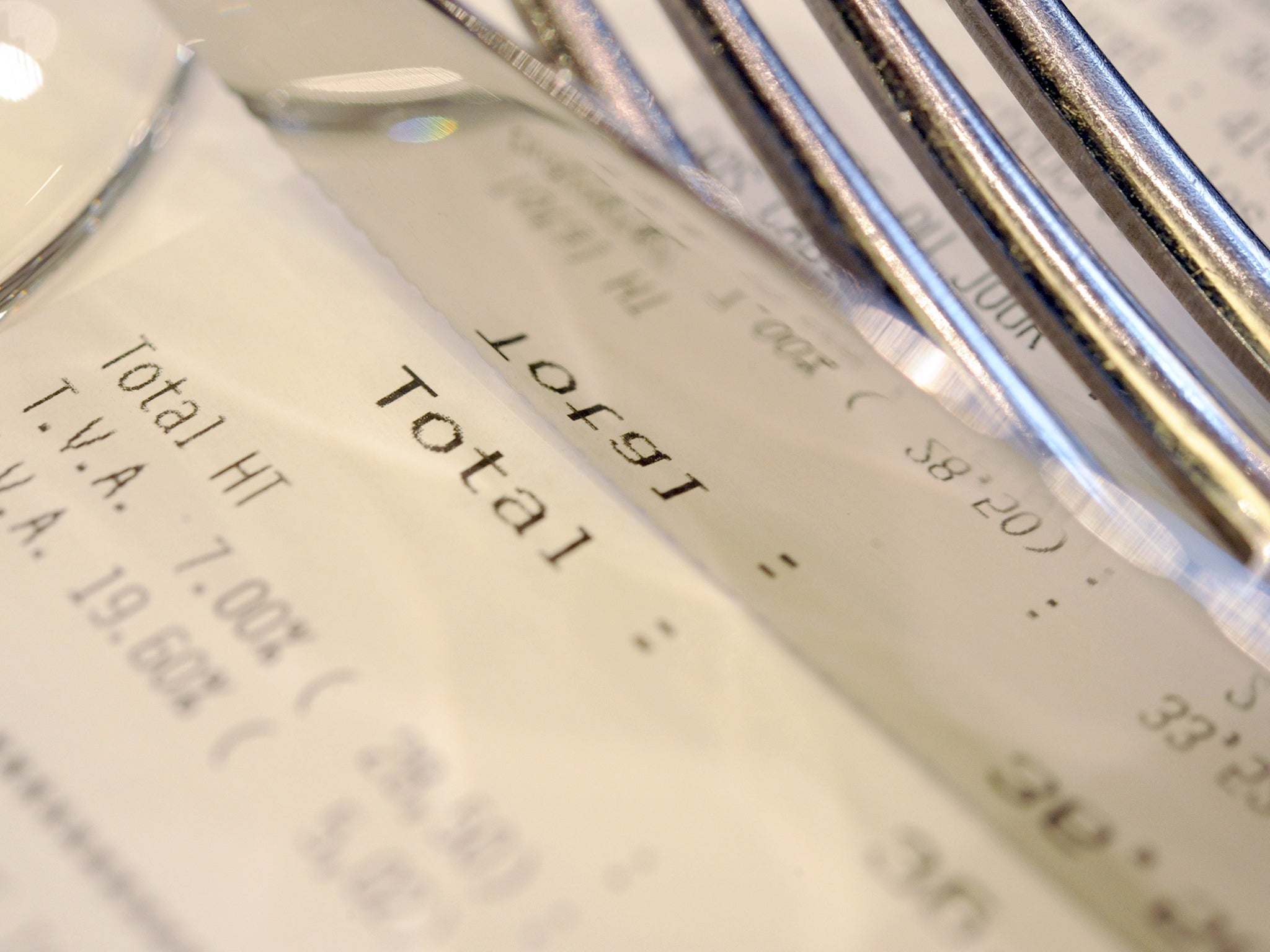Labour tax row: A receipt will help protect you
Just because someone asks to be paid in cash doesn’t mean they’re trying to avoid tax

Your support helps us to tell the story
From reproductive rights to climate change to Big Tech, The Independent is on the ground when the story is developing. Whether it's investigating the financials of Elon Musk's pro-Trump PAC or producing our latest documentary, 'The A Word', which shines a light on the American women fighting for reproductive rights, we know how important it is to parse out the facts from the messaging.
At such a critical moment in US history, we need reporters on the ground. Your donation allows us to keep sending journalists to speak to both sides of the story.
The Independent is trusted by Americans across the entire political spectrum. And unlike many other quality news outlets, we choose not to lock Americans out of our reporting and analysis with paywalls. We believe quality journalism should be available to everyone, paid for by those who can afford it.
Your support makes all the difference.Should you demand a receipt from a tradesperson? There’s a simple rule of thumb: if you ask someone to give you an invoice for work done, then you should expect a receipt when you pay. If you haven’t asked for an invoice, you shouldn’t always expect a receipt.
That’s the basic etiquette, but what about your legal position? If you don’t have a receipt, you don’t have any proof of payment. So for your protection, in case there are any problems with the work done, you should always get a receipt.
What about the tax position if you pay in cash? Just because someone asks to be paid in cash doesn’t mean they’re trying to avoid tax. There are several reasons why some traders prefer cash, not least cash flow.
If a tradesperson was caught not declaring income then they could be prosecuted for tax evasion. Ultimately that could mean a prison sentence.
If they didn’t declare any income they received from you, that doesn’t mean you’re guilty too . The offence is committed by the non-declaration.
In theory, if you had deliberately paid someone in cash to help them avoid tax, then you could be colluding in tax fraud. In practice, the tax authorities will not go after individual payers. They’re only interested in those who actually committed the fraud.
However, would you want a criminal working for you?
Tradespeople have several legal obligations. They must inform HMRC they are trading and therefore liable for income tax. They must also register for VAT if their turnover is above the VAT threshold of £81,000. Finally they must submit correct and complete tax returns.
Join our commenting forum
Join thought-provoking conversations, follow other Independent readers and see their replies
Comments